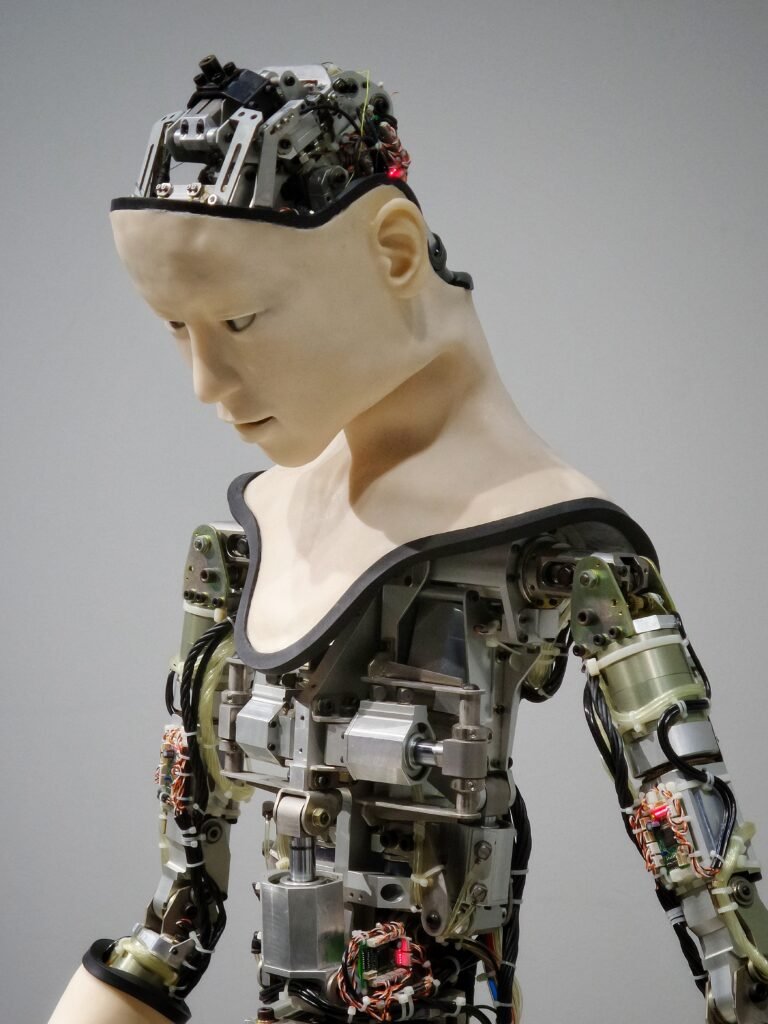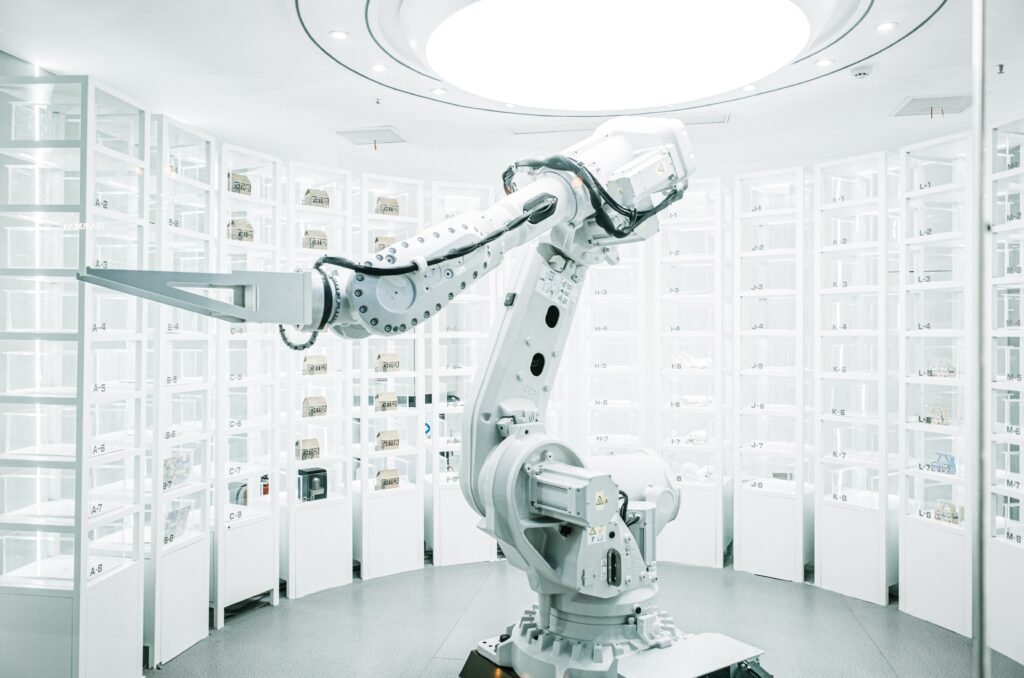In a joint statement released on October 17, 2023, Human Rights Watch and 86 other human rights and civil rights organizations called on Congress to regulate artificial intelligence (AI) in order to protect the rights and well-being of individuals. The statement highlights the potential risks and negative impacts of AI technologies on marginalized communities and urges Congress to include civil society and affected communities in the discussion and development of AI-focused legislation. It emphasizes that the risks posed by AI are not theoretical, but rather have tangible consequences on people’s access to economic opportunities, civil rights, and civil liberties. The statement asserts that for the United States to be a true global leader in AI, it must prioritize responsible, rights-respecting innovation and address the harms caused by AI technologies. The organizations express their willingness to collaborate with Congress in order to ensure that AI regulation effectively meets the needs of society as a whole.

Threats posed by AI to society
Impact on marginalized communities
Artificial Intelligence (AI) technologies have the potential to exacerbate existing social inequalities and pose significant threats to marginalized communities. Historically marginalized communities, such as people with disabilities, women, older individuals, and people of color, are disproportionately affected by the negative impacts of AI. AI tools that promise efficiency often turn out to be inaccurate and biased, denying individuals in these communities the right to build their futures and access economic opportunities.
Inaccurate and biased AI tools
One of the major concerns surrounding AI is the inaccuracy and bias of AI tools. Screening tools used by companies to streamline hiring, for example, have created barriers to employment for marginalized communities. These tools often rely on biased algorithms and data that perpetuate discrimination and exclusion in the workforce. This not only denies individuals in marginalized communities equal opportunities for employment but also hinders their access to economic stability and upward mobility.
Barriers to employment
AI systems that are inaccurate and biased can create significant barriers to employment for marginalized communities. People with disabilities, women, older individuals, and people of color often face discrimination in the job market, and AI technologies can perpetuate these discriminatory practices. By relying on biased algorithms and data, AI tools can reinforce existing biases and exclude qualified individuals from job opportunities, further marginalizing these communities.
Obstruction of public benefits
Inaccuracies or poor design in AI systems can obstruct people’s access to essential public benefits. For individuals in marginalized communities who rely on public assistance programs, such as welfare or healthcare, the consequences can be detrimental. AI tools used for determining eligibility for these benefits can mistakenly deny access to those who need them the most, leading to increased inequality and hardship for marginalized individuals and families.
Manipulated video and audio
Advancements in AI technology have made it easier to create manipulated video and audio content. This poses a significant threat to society, as manipulated content can be used for consumer fraud, extortion, and even manipulation of election-related information. These manipulations can have severe consequences for marginalized communities, as they can further erode trust in public information sources and contribute to the spread of misinformation and discrimination.
Trampling of civil rights and civil liberties
The use of AI in high-stakes decisions by law enforcement, immigration, and national security agencies raises concerns about the trampling of civil rights and civil liberties. Facial recognition systems, for example, have been found to disproportionately misidentify and falsely incriminate Black Americans. This not only violates their civil rights but also perpetuates systemic racism and discrimination in the criminal justice system.
Threat to creators’ livelihoods
Generative AI tools have the potential to replace creative work, threatening the livelihoods of artists, writers, and other creators. These tools are capable of generating content autonomously, which can lead to a decrease in demand for human-created content. This poses a significant economic threat to creators, who rely on their work for their livelihoods and may struggle to compete with AI-generated content.
Environmental impact and privacy concerns
The growing use of large language models and other AI technologies has raised concerns about their environmental impact and privacy implications. Large language models require enormous amounts of energy and water resources to train and operate, which threatens efforts to combat climate change. Additionally, the unchecked use of personal information to train these models raises significant privacy concerns, infringing on individuals’ rights to privacy, freedom of speech, and association.
The need for regulation
Achieving meaningful AI accountability
Given the numerous threats posed by AI to society, it is crucial to establish meaningful AI accountability through regulation. Congress must take proactive measures to address the risks associated with AI technologies and ensure that developers, companies, and users are held accountable for any harms caused. By establishing clear guidelines and standards for AI development and use, Congress can safeguard the rights and well-being of individuals, especially those in marginalized communities.
Leadership in responsible innovation
To be a true global leader in AI, the United States must prioritize responsible and rights-respecting innovation. This involves considering the potential impacts of AI technologies on society, particularly marginalized communities, and taking necessary precautions to mitigate potential harms. By leading in responsible innovation, the United States can set an example for other countries and foster the development of AI that respects human rights and promotes societal well-being.
Drawing on the expertise of civil society and impacted communities
In order to develop effective and inclusive AI regulation, it is essential to draw on the expertise of civil society organizations and the communities most impacted by these technologies. These stakeholders possess valuable insights and perspectives that can help shape regulations that address the specific needs and concerns of marginalized communities. By actively involving civil society and impacted communities in the legislative process, Congress can ensure that the regulations reflect the voices and interests of those most affected by AI.
Congressional action and involvement
First Senate AI Insight Forum
The first Senate AI Insight Forum, held on September 13th, was an important step towards addressing the risks and opportunities associated with AI. By including key civil society representatives in the forum, Congress demonstrated its commitment to engaging with experts and stakeholders from various sectors. This forum provided an opportunity for dialogue and knowledge-sharing, laying the foundation for future discussions and actions related to AI regulation.
Continued examination of opportunities and risks
Congress must continue to examine the opportunities and risks presented by AI technology. The rapid development and deployment of AI require ongoing scrutiny to ensure that societal benefits are maximized while potential harms are mitigated. By staying informed and proactive, Congress can respond effectively to emerging challenges and opportunities, ensuring that AI is harnessed in a way that protects the rights and well-being of individuals.
Inclusion of civil society representatives
As Congress continues its examination of AI, it is crucial to include civil society representatives in the legislative process. Civil society organizations play a vital role in advocating for the rights and interests of the public, including marginalized communities. By involving these organizations in the development of AI-focused legislation, Congress can benefit from their expertise and perspectives, resulting in more comprehensive and effective regulations.
Future AI Insight Forums, Congressional hearings, and legislation
It is essential for Congress to continue convening AI Insight Forums, conducting Congressional hearings, and enacting legislation to address the risks and opportunities associated with AI. These platforms provide opportunities for dialogue, knowledge-sharing, and collaboration between various stakeholders. By actively engaging with experts, impacted communities, and civil society organizations, Congress can develop a robust regulatory framework that safeguards the rights and well-being of individuals while fostering innovation and progress.
Consultation with civil society and impacted communities
Collaboration with public interest organizations
Collaboration with public interest organizations is key to developing inclusive and effective AI regulations. These organizations are dedicated to serving the interests of consumers, workers, families, voters, and the broader public. Their expertise and insights can contribute to the development of regulations that prioritize the needs and well-being of society as a whole. By collaborating with public interest organizations, Congress can ensure that its AI efforts align with the interests of the people it aims to protect.
Consideration of the needs of society
Congress must consider the needs of society, particularly marginalized communities, when developing AI regulations. It is important to address the specific challenges and concerns faced by these communities and tailor regulations to mitigate potential harms and ensure equitable access to the benefits of AI. By considering the needs of society as a whole, Congress can develop regulations that promote inclusivity, fairness, and social progress.

Addressing economic and societal impacts
Impact on access to economic opportunities
AI technologies have the potential to either enhance or hinder access to economic opportunities. It is crucial to address the impact of AI on marginalized communities, as they often face systemic barriers to economic advancement. By ensuring that AI systems are accurate, unbiased, and inclusive, Congress can help bridge the economic opportunity gap and create a more equitable society.
Threat to civil rights and civil liberties
The deployment of AI systems can have significant implications for civil rights and civil liberties. Congress must prioritize the protection of these fundamental rights when developing AI regulations. This includes addressing issues such as discriminatory algorithms, biased decision-making processes, and potential infringements on privacy rights. By safeguarding civil rights and civil liberties, Congress can prevent the further marginalization of vulnerable populations and ensure the fair and just use of AI technologies.
Inaccuracy and bias in AI systems
The inaccuracy and bias of AI systems can perpetuate discrimination and exclusion, particularly against marginalized communities. Congress must establish regulations that require transparency, accountability, and regular auditing of AI systems to mitigate the risks of inaccuracy and bias. By holding developers and users accountable for the performance and impact of AI systems, Congress can ensure that these technologies do not further entrench inequality and disadvantage.
Creation of barriers to employment
AI tools that are inaccurate and biased can create significant barriers to employment for marginalized communities. Congress must address this issue by regulating the use of AI in hiring processes and ensuring fairness, inclusivity, and transparency. By prohibiting the use of biased algorithms and discriminatory practices, Congress can promote equal access to employment opportunities and dismantle systemic barriers faced by marginalized communities.
Obstruction of public benefits
Ensuring equitable access to public benefits is crucial for the well-being and stability of marginalized communities. Congress must regulate the use of AI in determining eligibility for public benefits to prevent obstruction and exclusion. By addressing inaccuracies and biases in AI systems used for determining benefit eligibility, Congress can ensure that individuals in marginalized communities receive the support they need, without facing unnecessary barriers.
Consumer fraud and election-related concerns
The creation of manipulated video and audio content through AI technologies raises concerns about consumer fraud and electoral integrity. Congress must regulate the use of AI in these contexts to protect individuals and society from manipulation and misinformation. By establishing guidelines and safeguards, Congress can safeguard consumer rights, electoral processes, and public trust in information sources.
Trampling of civil rights and civil liberties
The use of AI by law enforcement, immigration, and national security agencies has the potential to trample on civil rights and liberties. Congress must establish regulations that safeguard against abuses of AI technology in these contexts. By setting clear boundaries, ensuring transparency, and providing oversight, Congress can protect individuals from unjust surveillance, profiling, and discrimination.
Threat to creators’ livelihoods
The rise of generative AI tools poses a threat to the livelihoods of creators in various fields. Congress must address this concern by considering the impact of AI on creative work and developing regulations that protect the rights and economic opportunities of creators. By promoting fair competition and supporting the value of human-created content, Congress can ensure that creators can continue to thrive in the face of technological advancements.
Environmental and privacy concerns
The environmental impact and privacy implications of AI technologies cannot be ignored. Congress must regulate the energy and water requirements of large language models and other resource-intensive AI systems to mitigate their environmental footprint. Additionally, Congress must establish regulations that protect individuals’ privacy rights and freedoms, particularly in the context of data collection and use. By addressing these concerns, Congress can ensure that AI development and deployment are environmentally sustainable and respectful of individuals’ privacy.
The role of Congress in protecting rights
Working closely with civil society
Congress must work closely with civil society organizations to protect the rights and well-being of individuals. These organizations have valuable expertise and insights that can inform the development of AI regulations. By actively engaging with civil society, Congress can ensure that its actions align with the interests and needs of the public, particularly marginalized communities.
Pursuing rights-respecting AI accountability
Congress must prioritize the pursuit of rights-respecting AI accountability when developing regulations. This involves holding developers, companies, and users accountable for the impact of AI technologies on individuals’ rights and well-being. By establishing clear guidelines, standards, and mechanisms for accountability, Congress can ensure that AI is developed and used in a manner that respects and protects human rights.
Leading in responsible innovation
As a global leader in technology and innovation, the United States must also lead in responsible and rights-respecting innovation. Congress plays a vital role in setting the regulatory framework that guides innovation. By developing regulations that prioritize the protection of rights and well-being, Congress can foster an environment where responsible innovation is the norm, inspiring other countries to follow suit.

Impacts on marginalized communities
Disproportionate effects on historically marginalized communities
AI technologies often have disproportionate effects on historically marginalized communities. These communities already face systemic inequalities and discrimination, and AI can further exacerbate these challenges. Congress must prioritize the development of regulations that address the specific needs and concerns of marginalized communities, ensuring that AI does not perpetuate or amplify existing forms of discrimination and exclusion.
Denial of economic opportunities
AI tools that are inaccurate and biased can deny individuals in marginalized communities access to economic opportunities. Congress must address this issue by regulating the development and use of AI systems to ensure fairness, transparency, and inclusivity. By promoting equal access to economic opportunities, Congress can help bridge the economic gap and empower marginalized communities.
Barriers to employment
Marginalized communities often face significant barriers to employment, and AI technologies can exacerbate these challenges. Congress must establish regulations that prohibit discriminatory practices in AI-based hiring processes and promote fair and inclusive hiring practices. By addressing the barriers to employment faced by marginalized communities, Congress can help create a more equitable job market.
Obstruction of public benefits
AI systems used to determine eligibility for public benefits can obstruct marginalized communities’ access to essential support. Congress must regulate the use of AI in benefit determination to ensure accuracy, fairness, and transparency. By mitigating the risks of exclusion and discrimination, Congress can ensure that individuals in marginalized communities receive the support they need to thrive.
Inaccurate and biased AI tools
Negative impact on marginalized communities
Inaccurate and biased AI tools have a negative impact on marginalized communities, perpetuating discrimination and exclusion. Congress must address this issue by establishing regulations that promote accountability and transparency in the development and use of AI systems. By holding developers and users accountable for the performance and impact of AI tools, Congress can prevent further marginalization and ensure equal opportunities for all.
Denial of economic opportunities
AI tools that are inaccurate and biased deny individuals in marginalized communities access to economic opportunities. Congress must regulate the use of AI in various sectors to ensure fairness, inclusivity, and accuracy. By setting standards and guidelines for the development and use of AI tools, Congress can prevent the denial of economic opportunities and promote a more equitable society.
Barriers to employment
Biased and discriminatory AI tools can create significant barriers to employment for marginalized communities. Congress must address this issue by regulating the use of AI in hiring processes and promoting fair and inclusive practices. By prohibiting the use of biased algorithms and discriminatory practices, Congress can ensure that marginalized communities have equal access to job opportunities and can build sustainable careers.
Obstruction of public benefits
Inaccuracies and biases in AI systems can obstruct marginalized communities’ access to essential public benefits. Congress must establish regulations that ensure the accuracy and fairness of AI systems used for determining benefit eligibility. By addressing these issues, Congress can ensure that individuals in marginalized communities receive the support they need to thrive, without facing unnecessary barriers and exclusions.
Environmental impact and privacy concerns
Energy and water requirements of large language models
The energy and water requirements of large language models used in AI systems have raised concerns about their environmental impact. Congress must regulate the use of these resource-intensive technologies to ensure sustainability and minimize their carbon footprint. By promoting energy-efficient and environmentally friendly AI development practices, Congress can contribute to global efforts to combat climate change.
Unchecked use of Americans’ information
The unchecked use of Americans’ personal information to train AI systems raises significant privacy concerns. Congress must establish regulations that protect individuals’ privacy rights and ensure that their personal information is handled responsibly and ethically. By safeguarding privacy, Congress can preserve individuals’ rights and prevent the misuse of personal information for AI development and use.
Threat to combatting climate change
The energy requirements of large language models and other resource-intensive AI systems pose a threat to efforts to combat climate change. Congress must regulate the development and use of these technologies to ensure that their environmental impact is minimized. By promoting sustainable AI practices, Congress can contribute to the global fight against climate change and environmental degradation.
Violation of privacy rights and freedoms
The unchecked use of personal information for AI development and use can violate individuals’ privacy rights and freedoms. Congress must establish regulations that protect privacy and ensure that individuals have control over their own data. By safeguarding privacy rights, Congress can uphold individuals’ freedoms of speech, association, and personal autonomy.
In conclusion, Congress must take proactive measures to regulate AI and mitigate the threats it poses to society, particularly marginalized communities. By involving civil society organizations and impacted communities in the regulatory process, Congress can develop regulations that prioritize the protection of rights and the well-being of individuals. Through meaningful AI accountability, responsible innovation, and close collaboration with stakeholders, Congress can ensure that AI technologies are developed and used in a manner that respects human rights and fosters a fair and inclusive society. Additionally, Congress must address the specific economic and societal impacts of AI on marginalized communities, including barriers to employment, denial of economic opportunities, and obstruction of public benefits. By addressing these concerns, Congress can promote equality, fairness, and social progress in the age of AI. Moreover, Congress plays a crucial role in protecting rights by working closely with civil society, pursuing rights-respecting AI accountability, and leading in responsible innovation. By establishing comprehensive regulations and guidelines, Congress can navigate the complex landscape of AI and safeguard the rights and well-being of individuals, creating a society that is both technologically advanced and respectful of human rights.






